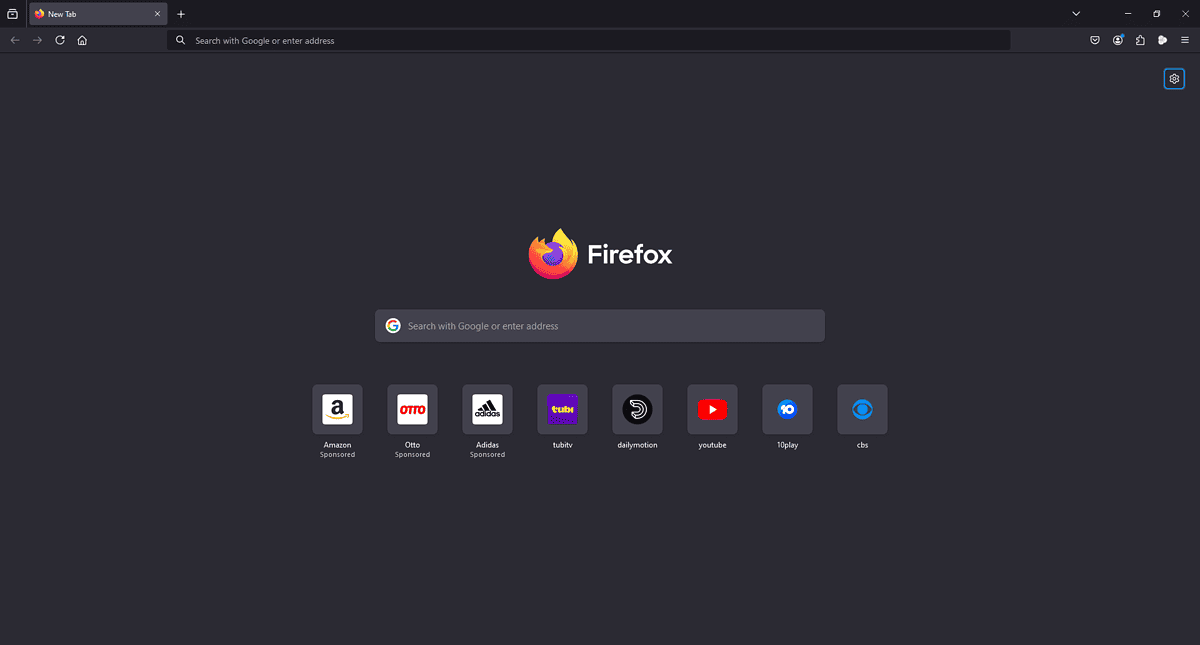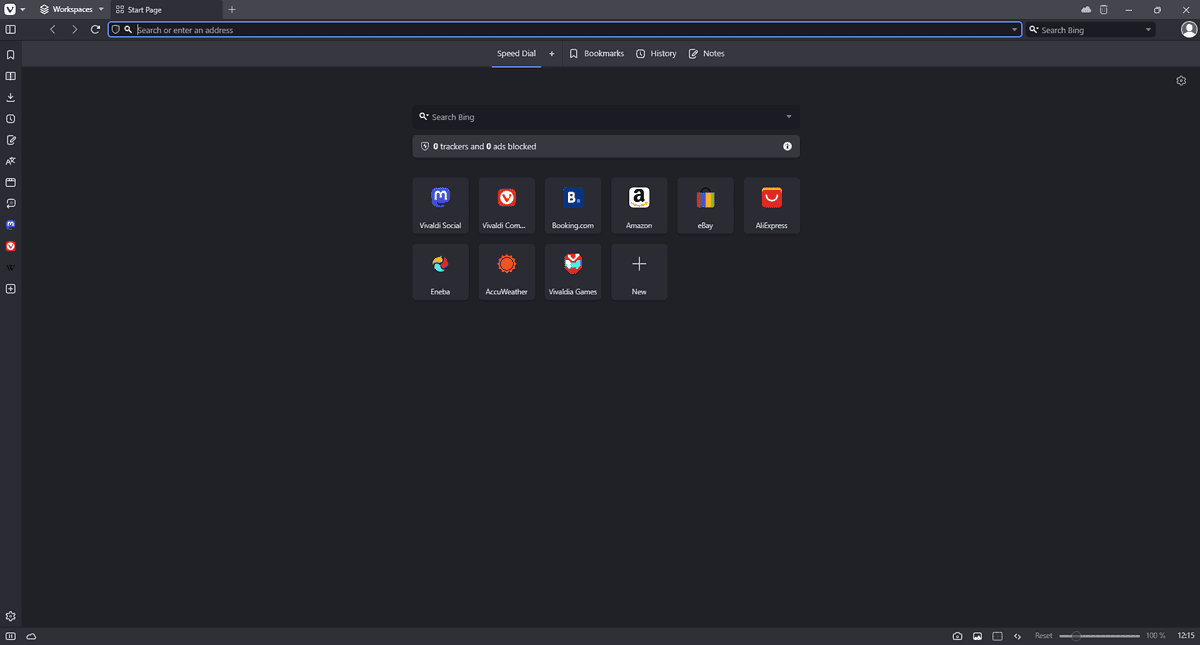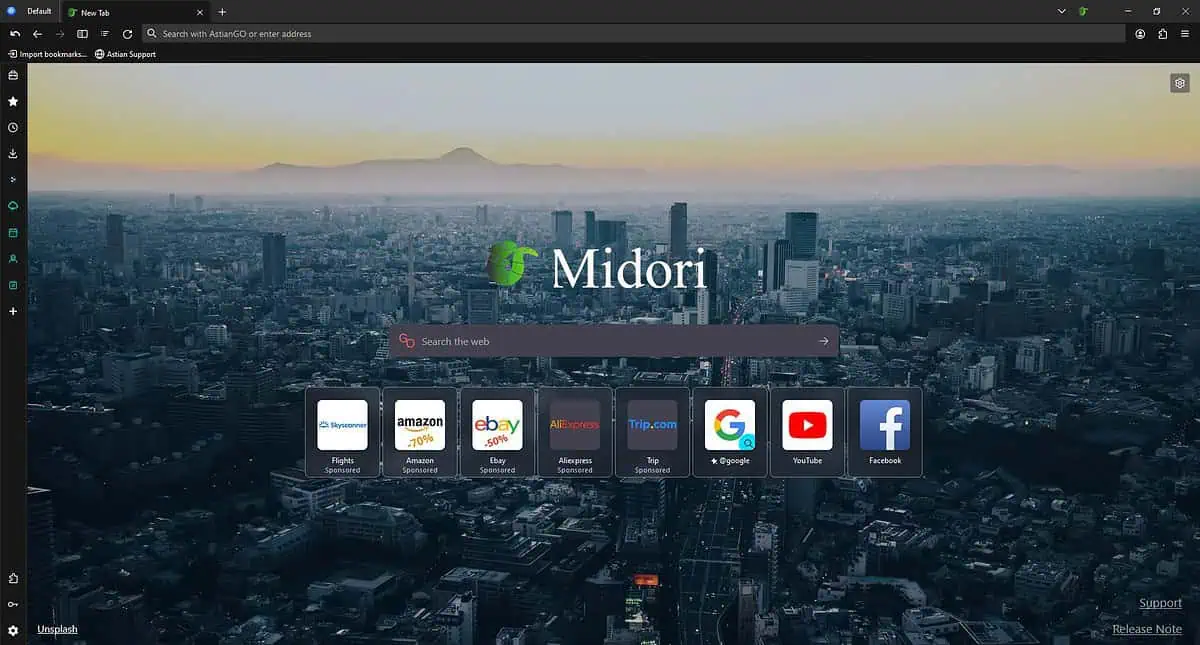Best Yandex Browser Alternative: 5 High-Quality Options

I tested over 20 options to choose the best Yandex Browser alternative. Yandex is great for Russian-language uses, providing a great set of integrated features.
This guide explores five top Yandex Browser replacements, each offering unique strengths. The range starts with enhanced privacy and ends with extensive customization. Scroll down to find out the results!
Best 5 Yandex Browser Alternatives
1. Opera

Opera includes a built-in VPN that is far better for privacy protection than Yandex’s standard security. Opera’s Turbo mode compresses web pages and outperforms Yandex on slow connections, so you won’t have to worry about speed.
Yandex offers only limited customization, while Opera lets you personalize your browsing experience almost entirely.
Opera’s integrated messaging sidebar allows users to quickly chat on popular platforms without switching apps. It also includes a cryptocurrency wallet and screen capture tools, expanding functionality beyond Yandex’s capabilities.
Opera may use more system resources than Yandex, but it balances this out with faster browsing speeds and better customization. Despite less integration with Yandex services, Opera’s features make it a worthy alternative.
Pros
- Built-in VPN and ad blocker
- Turbo mode for faster browsing
- Extensive customization options
- Integrated messaging sidebar for popular platforms
- Built-in cryptocurrency wallet
- Easy-to-use screenshot and screen recording tools
- Workspaces feature for better tab organization
Cons
- Smaller extension library than some competitors
- It may consume more resources than the Yandex Browser
2. Mozilla Firefox

Firefox is an open-source browser that emphasizes your privacy. Its Container Tabs feature can’t be compared to Yandex’s privacy measures.
Unlike Yandex’s limited add-ons, Firefox offers a large library of extensions for greater customization.
Firefox’s regular updates and community support help it keep up with web standards. While Yandex integrates well with its services, Firefox provides a more neutral platform with enhanced tracking protection and Pocket integration.
Firefox may use more system resources than Yandex but compensates with robust privacy features, including multi-account containers not available in the Yandex Browser. Is this a better browser than Yandex? That’s for you to decide, but I recommend it as an alternative.
Pros
- Powerful privacy features, including Container Tabs
- Extensive add-on library
- Regular updates and active community
- Enhanced tracking protection
- Picture-in-Picture mode for videos
- Pocket integration for easy article-saving
- Multi-account containers for separating online identities
Cons
- May use more system resources than the Yandex Browser
- Less integration with Yandex services
3. Brave

Brave focuses primarily on privacy and ad-blocking.
While Yandex offers a standard level of protection, Brave offers built-in ad and tracker blocking. This setup is far more efficient at protecting user privacy.
It also introduces a unique cryptocurrency rewards system for viewing privacy-respecting ads, a feature absent in Yandex.
Yandex Browser integrates closely with Yandex search, and Brave provides a choice of search engines, including its privacy-focused option. Brave often loads pages faster than Yandex due to its ad-blocking capabilities.
It also includes features like Tor integration in private windows and IPFS support, which Yandex doesn’t have.
Brave’s extension library is smaller than Yandex’s but still provides a great set of customization features.
Pros
- Strong privacy protection with built-in ad and tracker blocking
- Cryptocurrency rewards system
- Faster page loading than Yandex
- Tor integration
- Built-in password manager
- IPFS integration for decentralized web browsing
- Sync functionality across devices without requiring an account
Cons
- Smaller extension library
- Less integration with Yandex services
4. Vivaldi

Vivaldi is very different from the Yandex Browser because it has extensive customization options.
Unlike Yandex’s standard interface, Vivaldi allows users to modify almost every aspect of the browser’s appearance and functionality. It offers productivity features not found in Yandex, such as built-in note-taking and screenshot tools.
Vivaldi’s tab management capabilities are far better than Yandex’s basic tab-handling options., Vivaldi has tab stacking and tiling, making it far more efficient when dealing with multiple tasks simultaneously.
While Yandex focuses on simplicity, Vivaldi caters to power users with features like Web Panels for side-by-side browsing. Vivaldi’s sync functionality is more comprehensive than Yandex’s, extending to notes and autocomplete information.
Vivaldi may have a steeper learning curve and higher resource demands than Yandex.
Pros
- Extreme customization options
- Productivity tools like built-in notes and screenshots
- Advanced tab management features
- Built-in email client
- Web Panels for side-by-side browsing
- Customizable keyboard shortcuts and mouse gestures
- Break Mode for quick privacy and focus
Cons
- There is a steeper learning curve than the Yandex Browser
- Resource-intensive on older hardware
5. Midori

Midori offers a lightweight alternative to the Yandex Browser, focusing on core browsing. It might be described as simple and efficient.
Its minimalist approach results in faster performance and lower resource usage, making it suitable for older hardware where Yandex might struggle.
Midori’s WebKit rendering engine ensures compatibility with modern web standards, potentially matching Yandex.
Unlike Yandex’s deep integration with its services, Midori provides a clean, distraction-free interface that gets the job done. It includes privacy-focused features like DuckDuckGo integration and a built-in ad blocker.
In my view, users who are used to Yandex’s feature-rich environment may find Midori’s streamlined feature set too basic for their needs. It’s up to you to decide if Midori can fill the gap.
Pros
- Extremely lightweight and fast
- Low resource usage
- Clean, distraction-free interface
- WebKit rendering engine for good web compatibility
- DuckDuckGo integration for privacy-focused search
- Customizable search engines
- Adblock feature included by default
Cons
- Limited features compared to the Yandex Browser
- Smaller extension library
- Less integration with online services
How to Choose the Best Yandex Browser Alternative
When looking for a Yandex Browser replacement, consider these unique factors:
- Language support: If you frequently browse non-English websites, check the browser’s localization capabilities and translation features.
- Data syncing: Evaluate how easily you can transfer your bookmarks, passwords, and browsing history from Yandex to the new browser.
- Mobile compatibility: If you use desktop and mobile devices, look for browsers with seamless cross-platform synchronization.
- Search engine flexibility: Consider how easy it is to change the default search engine, mainly if you’re accustomed to Yandex’s search integration.
- Download management: Compare the download handling capabilities, mainly if you frequently transfer large files.
- Reader mode: If you often read long articles, look for a built-in reader mode that removes distractions.
- Tab management: Look at how each browser handles multiple tabs, especially if you tend to keep many open simultaneously.
- Startup speed: Compare how quickly each browser launches, particularly on your specific hardware.
By evaluating these aspects, you can find a Yandex Browser alternative that matches and potentially enhances your browsing experience.
Summary
These Yandex Browser alternatives offer diverse features and capabilities. Opera provides high-quality features and a built-in VPN, while Firefox emphasizes privacy and customization.
Brave reimagines browsing with ad-blocking and crypto rewards, and Vivaldi caters to power users with extensive customization options. Midori offers a lightweight experience for older hardware, which might be perfect for older devices.
Here’s a comparison table to help you make an informed decision. I’ve tested all browsers using the same opened tab, and I closed all the background processes to get a valid performance reading.
Here are the results:
| Browser | RAM Usage | CPU Usage | Privacy Features | Customization | Russian Language Support | Yandex Services Integration |
|---|---|---|---|---|---|---|
| Yandex | 700MB | 2.5% | 3/5 | 2/5 | 5/5 | 5/5 |
| Opera | 750MB | 2.6% | 4/5 | 4/5 | 3/5 | 1/5 |
| Firefox | 870MB | 2.9% | 5/5 | 5/5 | 4/5 | 2/5 |
| Brave | 755MB | 2.9% | 5/5 | 3/5 | 3/5 | 1/5 |
| Vivaldi | 980MB | 2.5% | 4/5 | 5/5 | 3/5 | 2/5 |
| Midori | 450MB | 1.8% | 3/5 | 2/5 | 2/5 | 1/5 |
Which Yandex alternative did you choose? Let me know in the comments!
Read our disclosure page to find out how can you help MSPoweruser sustain the editorial team Read more




User forum
0 messages